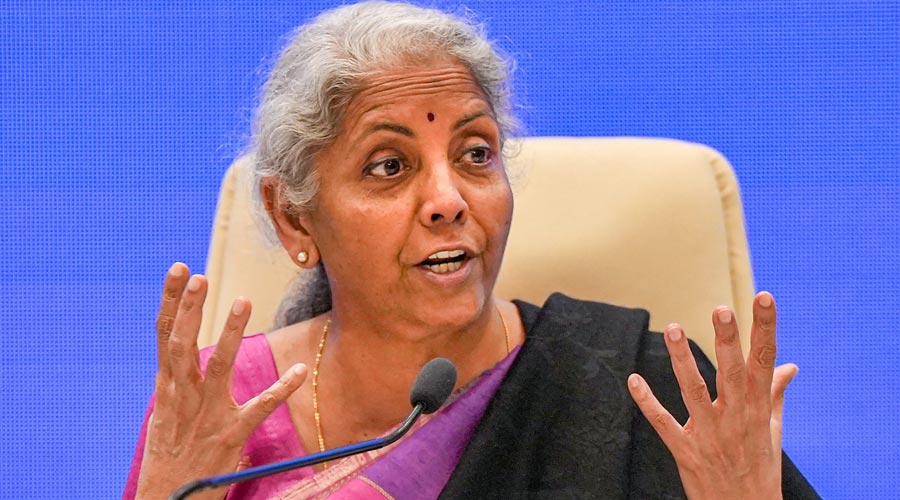The finance minister presented the Union budget in the 75th year of India’s independence with a vision of a technology-driven, knowledge-based economy at a time the country is at the cusp of a massive economic transformation.
Confronted with a polycrisis such as the pandemic, geo-political conflicts, energy crisis, inflation and recession, the world has recognised India as a ‘‘bright star’’ with the current year’s estimated economic growth of 7 per cent being the highest among all major economies of the world.
The FM’s economic agenda focuses on facilitating opportunities for the aspiring youth, providing job opportunities and ensuring macro-economic stability.
The direct tax proposals have also been aimed to maintain continuity, stability, simplicity and rationality to reduce the compliance burden, promote entrepreneurial spirit and provide tax relief to the citizens.
The initial focus of the Budget is to lay a strong foundation at the grass-root level with a targeted policy formulation for the people, micro, small and medium enterprises (MSMEs) and co-operative societies. From a personal tax perspective, the new tax regime (section 115BAC of the Income-tax Act, 1961 introduced vide Finance Act, 2020) was showered with numerous tax reliefs, indicating the FM’s endeavour to popularise the new regime.
The proposals aim to enable an individual opting for the new tax regime to claim a standard deduction of Rs 50,000, which had hitherto been available only in the old regime and avail a complete tax rebate for taxable income up to Rs 7 lakh, while the rebate in the old regime remains limited for taxable income up to Rs 5 lakh.
The tax slabs are reframed in favour of tax payers in the new tax regime, and the highest surcharge category of 37 per cent has been reduced to 25 per cent bringing the maximum marginal tax rate from 42.74 per cent to 39 per cent.
Under the new tax regime, an individual in the highest tax bracket would benefit to the tune of around Rs 20 lakh due to this reframed slab.
Considering the increase in salary level over the years, the FM announced the enhancement of tax exemption on leave encashment fromRs 3 lakh to Rs 25 lakh.
A couple of control measures, mainly directed towards high net-worth individuals, balance these benefits by proposing to tax the income from life insurance policies which have a premium exceeding Rs 5 lakh (individually or in aggregate) during any year and restricting the exemption available on capital gains upon purchase of residential property up to Rs 10 crore.
Foreign tours will result in a higher fund outflow as overseas tour operators will now collect a higher tax at source at 20 per cent compared with the existing rate of 5 per cent, which may aid the government’s intent of boosting the domestic tourism industry.To strengthen the entrepreneurial eco-system and small businesses, it has been proposed to defer tax deductions to a taxpayer until payments are made to micro and small enterprises (MSMEs) within a stipulated timeline, which would augment their cash flows.
The government’s effort to increase the ease of doing business while maintaining a vigil on the transactions through banking is simultaneously achieved through the proposal to increase the threshold for applicability of a presumptive tax regime.
For eligible businesses and professions, the threshold has been increased from Rs 2 crore to Rs 3 crore and Rs 50 lakh to Rs 75 lakh respectively, provided their cash receipts are restricted within the 5 per cent range.
To enable the start-up sector to cope up with the time lost due to the pandemic, the sunset date for incorporating a start-up entity (to be eligible for tax incentives) has been extended to March 31, 2024.
Also, the period of relaxation for carry forward and set-off of losses despite a change in shareholding has been proposed to be extended to 10 years from seven years. The process of claiming deduction on account of amortisation of preliminary expenses is simplified by eliminating the need for seeking prior approval, thereby enabling a smoother business growth.
The formation of a new ministry of co-operation, with a mandate to realise the vision of ‘‘Sahakar Se Samriddhi’’, reflects the government’s agenda of promoting a co-operative-based economic development model.
The government has embarked on its journey towards achieving this goal by enabling co-operative societies to be set up on or after April 1, 2023 and to let them enter the manufacturing sector at the beneficial tax rate of 15 per cent to compete fairly with the corporates, though the sunset date to commence manufacturing within March 31, 2024 does seem to be a difficult proposition.
Certain simplification measures are proposed such as the ability to withdraw cash up to Rs 3 crore (increased from existing Rs 1 crore) or provide or take a loan in cash up to Rs 2 lakh without triggering tax deduction at source or penal consequences.
The measures indicate that due care has been taken on the nature of co-operative societies’ activities whichhave a higher frequency of cash transactions. This would provide relief to the lower-income groups and make it easier for them to conduct business operations in remote areas.
The budget proposals indicate the government’s intent to build a vibrant and resilient economy by developing a simple, transparent and stable taxation framework. The focus is on building a launch pad to take off confidently into India’s decade.











